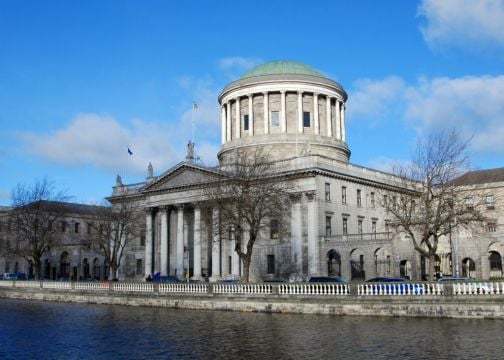A High Court judge has said his interpretation of reporting restrictions in relation to child victims of crime differs from a recent Court of Appeal judgement.
Speaking in the case of now adult victims of child abuse who wish to have their rapist named, Justice Tony Hunt said that his own interpretation of the law “must yield to that of the higher court”.
He was commenting on section 252 of the Children Act 2001 which provides mandatory and automatic reporting restrictions in the case of “any proceedings for an offence against a child”.
Last month the Court of Appeal found that these prohibitions extend to children who had died or turned 18. The Court of Appeal was ruling in an appeal by the media against restrictions imposed on the naming of a child and her mother, who had killed the child while suffering from depression.
Justice Hunt said that in his view “the natural and ordinary meaning of the term 'child' does not encompass a deceased child or an adult”.
“On that interpretation the operation of section 252 would automatically cease when the child concerned either died or became an adult. In either of those events there would no longer be any child to which any protection conferred by the Act might apply”.
He said he did not believe this interpretation “would have been either contrived or artificial”.
Children Act
In the case before the Central Criminal Court today, lawyers for a 56-year-old convicted child rapist had previously submitted to Justice Hunt that their client cannot be identified because of the Children Act.
The man pleaded guilty in 2015 at the Central Criminal Court to the repeated rape and sexual assault of his wife's two sons at his Co Wicklow home over a ten-year period. The victims were under ten years old when the abuse started in 1993 and the attacks continued for a decade.
In March 2016 Mr Justice Tony Hunt imposed a prison term of 21 years, with the final five years suspended.
At that sentencing, the victims, who are now adults, told the court they wished to waive their statutory anonymity so their step-father can be named publicly. However, because there were related cases to be prosecuted, Mr Justice Hunt placed a stay on the waiving of the anonymity.
These cases have now finished and the Director of Public Prosecutions (DPP) is seeking, on behalf of his two victims, to have this stay lifted so that the convicted rapist can be identified.
Stay on order

This morning Justice Hunt said while the Court of Appeal ruling means the section 252 prohibitions apply, there is still scope in that section to lift the restrictions where the court “is satisfied that it is appropriate to do so in the interests of the child”.
He accordingly made an order lifting all reporting restrictions in the case, saying he considers this was “in the public interest”. But he placed a 28-day stay on his order pending an application to the Court of Appeal by the defendant.
He said that, having reviewed the testimony of the victims and their repeated assertions that they wish to be identified, he was satisfied that he should lift these prohibitions.
He said that “the act of a victim in publicly speaking out about their experiences can assist the victim in recovery from the effects of the crime” and can also encourage others in their position to come forward







